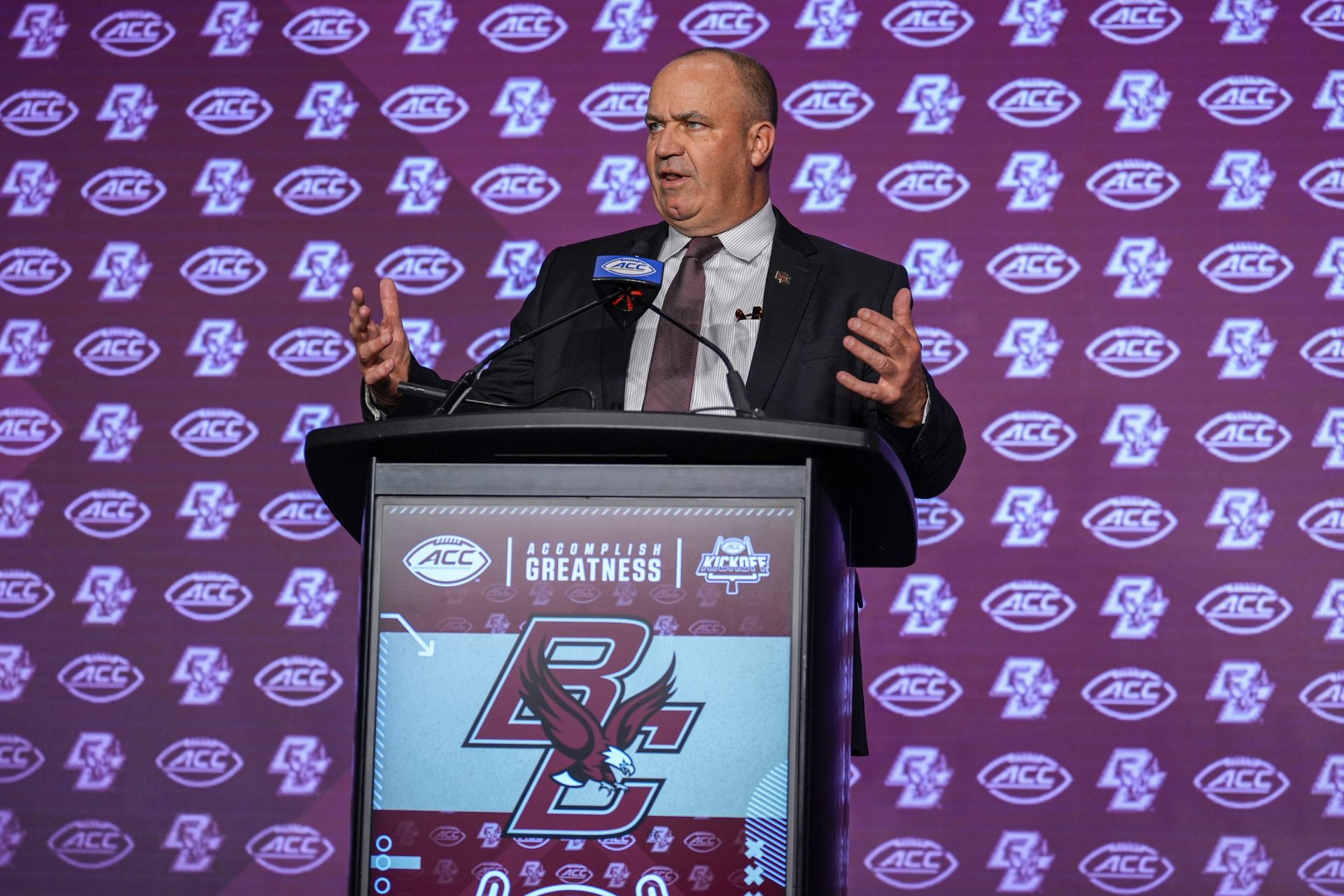The College Football Rules Committee announced its official rule changes for the 2024 season, and this year’s new rules have a heavy NFL influence.
As college football makes changes that mirror the NFL game, teams with extensive NFL experience could have an advantage, at least in the early parts of the season.

New College Football Rules Help NFL-Rich Staffs
The three main rule changes all serve to make the college game a bit more like the NFL.
The implementation of a Two-Minute Timeout (note: not warning) will make a clearer break between normal rules and the special clock rules that already exist in the last two minutes of the half.
While coaches and players likely won’t have much trouble adjusting to that change, two other changes could really shake things up.
The additions of coach-to-player headset communications and sideline tablets will surely benefit quarterbacks. But the extent to which those players could be aided will vary from player to player and team to team.
Could past NFL coaching experience be a key to unlocking the full potential of additional technology?
The NFL has been using helmet communications since 1994 and sideline tablets since 2014, so we have plenty of available data on how the technology aids players.
However, there’s bound to be a learning curve to using the technology, and coaches (and players) will have differing adjustment periods and potential for growth.
For example, a play-caller with NFL coaching experience already knows what helmet communication can — and can’t — do to help his quarterback.
A regular college coach would need almost two years of play-calling experience with helmet communications to have the same experience with the technology as a coach with just one year of NFL play-calling experience.
Most teams don’t have NFL coordinator experience on their coaching staff, but the teams that do will have a huge headstart with the technology.
There’s a second aspect at play here, though it’s one that’s harder to see on the surface.
Helmet technology doesn’t help every quarterback equally. Signal-callers who win with an innate ability to read defenses before the snap won’t find as much help in helmet communication as more inexperienced quarterbacks who win with raw talent.
MORE: Simulate the College Football Season with CFN’s College Football Playoff Predictor
Sure, a “field general” might be able to more quickly tell a coach what went right or wrong when reviewing a play on the sideline tablet, but he also won’t benefit as much from a coach telling him the defense is in Cover 1 before the snap.
We’ve seen the effect of helmet technology in the NFL with the rise of “raw” quarterbacks who are drafted early and have NFL success. These are players with elite athletic traits who might struggle to identify coverages.
While we don’t know how home-field advantage will affect communications (as college stadiums tend to get much louder than pro stadiums), there will certainly be some sort of impact.
In 2024, the teams that maximize the benefits of helmet communications will have a distinct advantage over their competition.
Which Teams Could Benefit Most from the College Football Rule Changes?
I’ve identified a few teams that could benefit greatly from the new rule changes, specifically the use of coach-to-player communications and sideline tablet technology.
Boston College is the first obvious team.
Head coach and presumed offensive play-caller Bill O’Brien has seven years of NFL head coaching experience and called plays for five years with the New England Patriots. He’s run the gamut of NFL quarterbacks, from guys like Tom Brady and Deshaun Watson to fringe starters like Brian Hoyer and Brock Osweiler.
Word out of Chestnut Hill is that O’Brien wants to run a pro-style system with a free-wheeling quarterback in Thomas Castellanos. On paper, it seems like a bad fit. But the coach-to-player communications will likely help Castellanos transition into less of a thrower and more of a quarterback.
Several other teams with a wealth of NFL coaching experience on the staff will likely have their freshmen ahead of the curve because of helmet communications.
Nebraska head coach Matt Rhule never called plays in the NFL, but he’s familiar with the technology, while offensive coordinator Marcus Satterfield also spent a season in the pros, albeit the COVID-impacted 2020 season with the Carolina Panthers.
True freshman Dylan Raiola will surely benefit from having a coach in his ear while on the field.
Lastly, Shane Beamer has quietly built an NFL-centric coaching staff at South Carolina. Offensive coordinator and play-caller Dowell Loggains held the same position with the Titans, Bears, Dolphins, and Jets, while special teams coordinator Joe DeCamillis, wide receivers coach Mike Furrey, and defensive ends coach Sterling Lucas also coached in the pros.
Longtime NFL coordinator Mike Shula is an analyst for the Gamecocks, and he has plenty of sway within the offense.
The Gamecocks will start redshirt freshman LaNorris Sellers at quarterback, a player with elite athleticism and little college experience. He should certainly benefit from helmet communications.
While it remains to be seen how exactly the rule changes will affect the sport, there’s a competitive advanatage to be gained in helmet communications. The teams that most effectively identify and maximize those advantages will put themselves ahead of their opponents, at least in 2024.
College Football Network has you covered with the latest news and analysis, rankings, transfer portal information, top 10 returning players, the 2024 college football season schedule, and much more!

